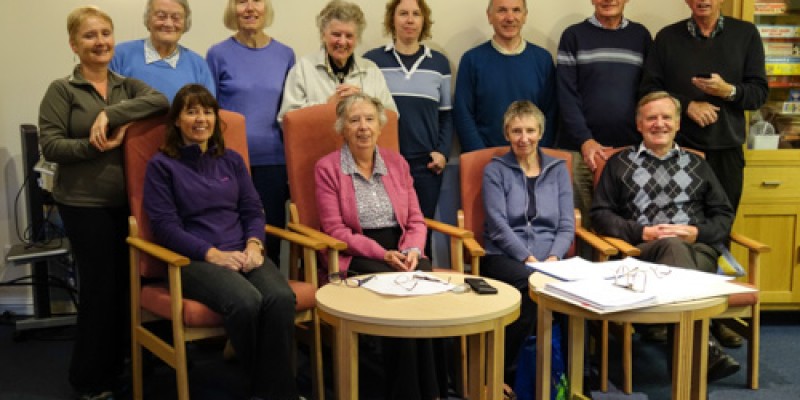
This month James Evans, Health Inequalities Volunteer met with Sue Northrop. Sue has personal experience of caring for close family members with dementia and is a member of the North Berwick Day Centre Voluntary Management Committee. After many years working on public service reform in the Scottish Government, Sue decided it was time to take the theory and apply it in practice in her home town and is working with a small organising group to set up Dementia Friendly North Berwick.
The Dementia Friendly Communities programme focuses on improving the quality of life for people with dementia and was set up through Alzheimer Scotland. Edinburgh is one of 12 UK cities working with the World Health Organisations Age Friendly Cities Network. Dementia Friendly Towns and Cities and Dementia Supportive Communities are being set up across the UK. Each one is unique, building on local circumstances. Sue says “an important feature of our approach in East Lothian is that it is community led, we will build up our hopes and dreams from the community rather than starting to work from the top down”.
Dementia can shatter people’s social connections for a whole range of reasons, so it is important to support the development of community links. This is a core part of the National Dementia Strategy. Motherwell and Stirling are both examples of successful dementia friendly towns. Within the community everyone from shop owners to bus drivers is familiar with how to respond to people with dementia. This can have a significant positive impact on the health of those people who have a diagnosis of dementia as they are assisted on an everyday basis while remaining part of their community.
Sue feels there are a lot really valuable and important local and innovative initiatives going on to address the needs of people with dementia, but there is lots more to be done. The Scottish Government’s Dementia Plan provides an important framework. The plan outlines that after a year of being diagnosed with dementia an individual is given a year plan of care. This helps individuals put things in place for the rest of their dementia journey, where support will be provided throughout.
One of the main issues faced by people with a diagnosis of dementia is loneliness and isolation. This can lead to mental health issues which can worsen their condition. The inequalities that are created here can be less about money and more down to the social connections. Sue states that “what really matters is the quality of the care and human contact people receive, that shouldn’t depend on how much services cost”. Money could be spent on a state of the art home but the social connections may be lacking and it is quality human relationships which mean people with dementia can live not just exist.
Sue sees the Day Centres as playing an important role. Services are provided locally for older people in the community, not just people with dementia, so they can stay in touch with their friends and neighbours. The large numbers of volunteers ensures there is always someone round for a chat and the volunteers help people maintain connections with other local bodies like churches or clubs. The Day Centres are also a hub, a point of contact for carers and service users and a place where they can use the computer or learn a new skill, all geared round their needs and interests. For more information of the day centre please visit their website. If you would like to find out more about Dementia Friendly please visit their website.

